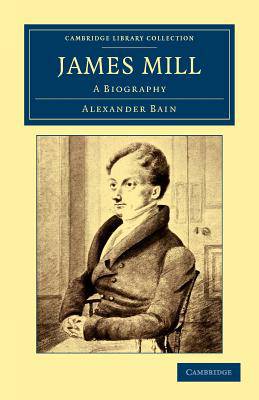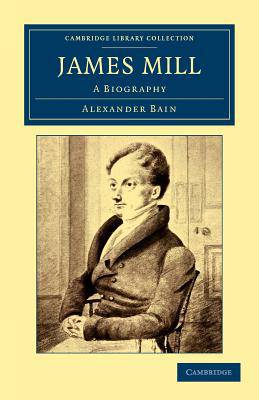
- Afhalen na 1 uur in een winkel met voorraad
- Gratis thuislevering in België vanaf € 30
- Ruim aanbod met 7 miljoen producten
- Afhalen na 1 uur in een winkel met voorraad
- Gratis thuislevering in België vanaf € 30
- Ruim aanbod met 7 miljoen producten
Zoeken
Omschrijving
Who was James Mill (1773-1836)? What was his legacy to British society and culture? The achievement of this Scottish-born political philosopher, economist and historian has been overshadowed by that of his son, John Stuart Mill, but as Alexander Bain (1818-1903), himself a philosopher and empiricist, shows in this biography, published in 1882, Mill's range of interests was remarkable. He wrote on education and psychology, and developed theories on political economy and the need for parliamentary reform. Mill was also critical of the history of British colonialism (his three-volume History of India is reissued in this series), and argued for religious tolerance, as well as collaborating with Jeremy Bentham as a proponent of utilitarianism, the philosophy which sought 'the greatest happiness of the greater number'. Bain places the facts of Mill's life in the context of the remarkable changes undergone by British society and culture in this period.
Specificaties
Betrokkenen
- Auteur(s):
- Uitgeverij:
Inhoud
- Aantal bladzijden:
- 506
- Taal:
- Engels
- Reeks:
Eigenschappen
- Productcode (EAN):
- 9781108040808
- Verschijningsdatum:
- 8/12/2011
- Uitvoering:
- Paperback
- Formaat:
- Trade paperback (VS)
- Afmetingen:
- 140 mm x 216 mm
- Gewicht:
- 635 g

Alleen bij Standaard Boekhandel
+ 190 punten op je klantenkaart van Standaard Boekhandel
Beoordelingen
We publiceren alleen reviews die voldoen aan de voorwaarden voor reviews. Bekijk onze voorwaarden voor reviews.











